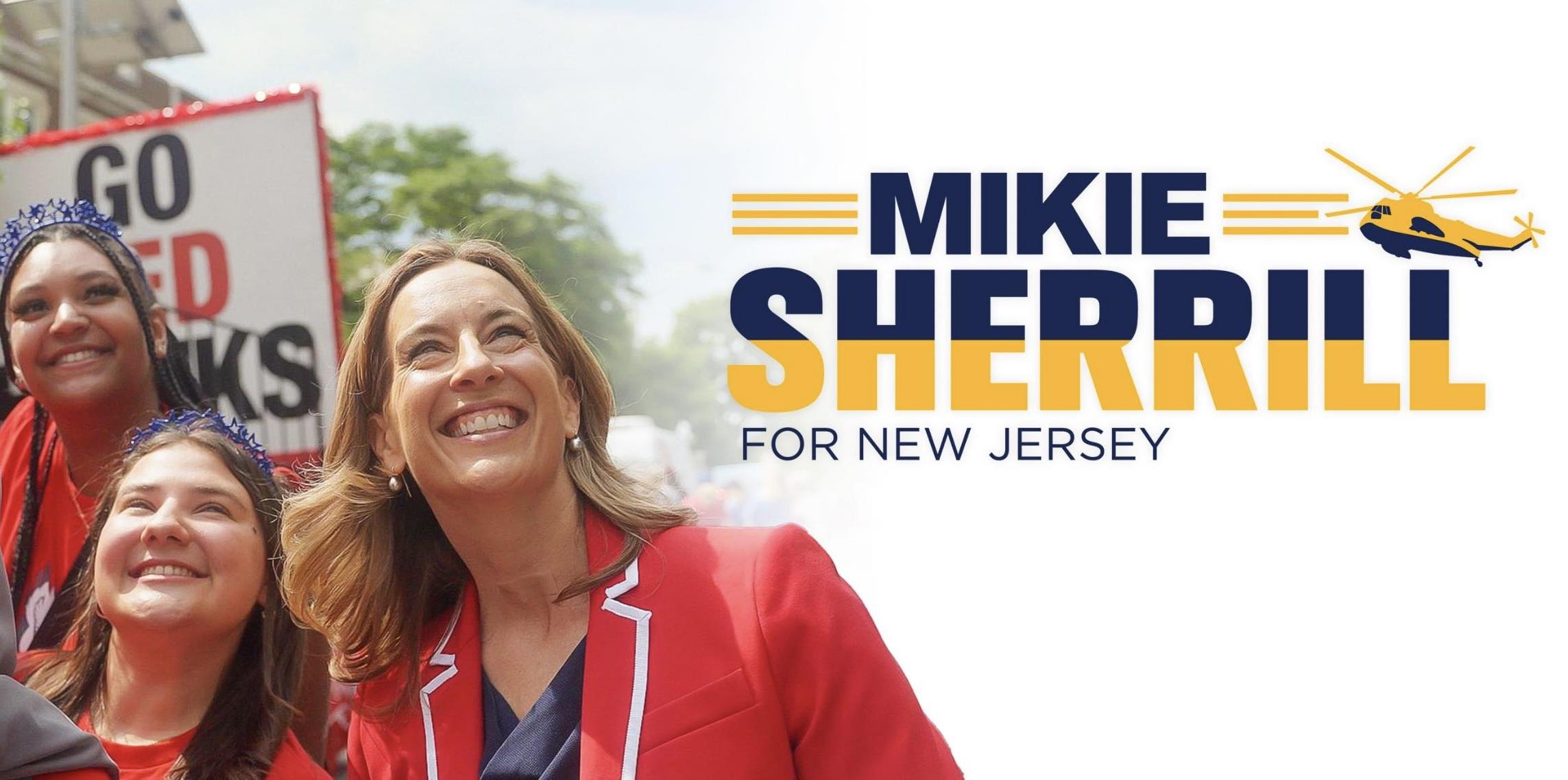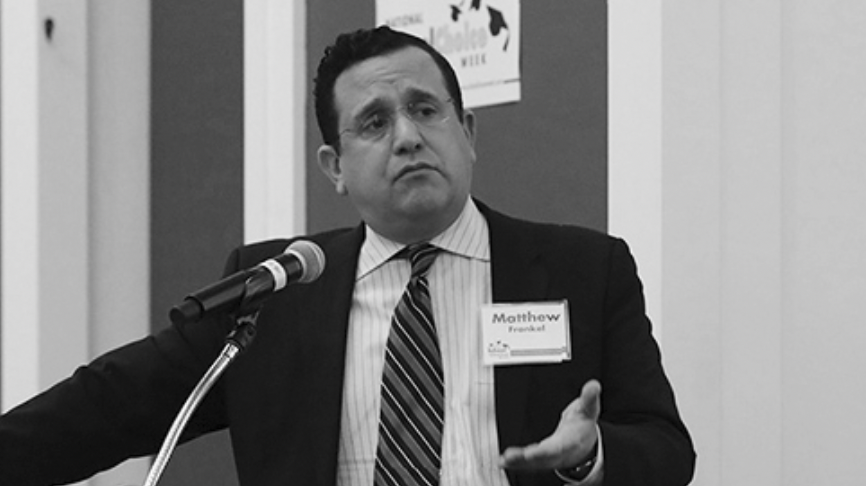
A Message For Mikie Sherrill On How To Improve NJ’s Public Schools
November 10, 2025
SCOOP: Sherrill and NJEA Receive Letters Blasting Union’s Antisemitic Convention Session
November 14, 2025NJEA Is Celebrating Sherrill’s Win. That’s a Problem For NJ Students.
Dr. Marc Gaswirth, a retired public school administrator, has written extensively for more than 40 years about public sector bargaining and school human resources.
What a celebratory mood it must have been last week in Atlantic City at the annual two-day NJEA workshop, buoyed by the election of Mikie Sherrill and further lifted by the solidified Democrat supermajority in the state assembly.
The state union is currently beset with embarrassing legal charges against it and an unprecedented public relations nightmare that it wasted more than $40 million dollars of union dues on a campaign trying to install its former president as the state’s top official. The NJEA will still take credit for Sherrill’s victory despite opposing her in the Democratic primary.
No surprise that it eventually supported her in the general election with a clear expectation that its interests will be rewarded generously in the coming years.
Should the governor-elect follow through on these interests, meaningful education reform during the next four or perhaps eight years will be stymied. What we are likely to see is a continuation of the Murphy administration’s policies, which were great for school employees but far less so for students in the lower socio- economic bracket whose performance levels on standardized tests stagnated or declined.
Mikie Sherrill’s substantial victory over her Republican opponent should be attributed not to messaging, clearly–stated principles and values, well-articulated policies, or the likeability of the two candidates. It was largely about the voters’ revulsion at the Republican chief residing several hundred miles from the state.
Overwhelmingly, independent-minded state voters turned their backs on the man who in last year’s presidential election nearly won a majority of the electorate in a traditional blue state.
Sherrill’s impressive win even might warrant sending the president a thank you note for alienating in one year so many state voters who might have supported another Republican candidate who wasn’t beholden to him.
The governor-elect, however, would be mistaken to believe that she received an overwhelming mandate to pursue and implement her policies.
What is certain is that her victory will have the unintended consequence of blunting or stifling any serious discussions of education reform. The state’s Republican Party may now be all but irrelevant, but its education platform in the recent election raises issues meriting further attention.
These include increasing the number of charter schools to address under-performing students attending under-performing schools, and introducing a school voucher program to further avail parents of options other than sending their children to local public schools that have failed to fulfill their primary mission to educate their children.
In fairness, both gubernatorial candidates offered only bromides and generalizations to make school districts less reliant on rising property taxes; failed to address the complex and confounding nature of the state education aid formula; and, at the risk of challenging the cherished but outdated notion of local control, and deflected questions on why 600 state operating school districts might be excessively expensive.
Nor did either candidate state a position or opinion on perhaps the most compelling immediate issue now before the courts, namely, whether many of the state’s schools are inherently racially segregated and what effect this might have on student opportunity and achievement.
On a lesser scale, they were also largely silent about the current collective bargaining model primarily designed to protect employee (union) interests rather than somehow also serving and protecting those of students, or whether the level of salaries, benefits and job protections provided to school employees aligns with any degree of performance accountability required of them.
Expect that these serious policy questions to be left largely unaddressed during the Sherrill administration as they were during the departing administration in the face of formidable opposition from the customary interest groups calling the shots in the state capital.
Firmly ensconced in power, the Democrats will probably continue to skirt and resist while not seriously addressing longstanding and admittedly difficult and uncomfortable political discussions.
The governor-elect, in her recent victory speech, declared that “Good government doesn’t just manage problems. It solves them.” Few would disagree with her.
But, let’s see what happens now that she and her party control the levers of power. When all is said and done, much more is likely to be said than ever done.
Photo courtesy of flickr.





4 Comments
I believe Mikie Sherrill understands the value of a good education. Like any parent, she has paved the way for her children to follow her footsteps- as students in the prestigious Naval Academy.
But, now she is in charge of all of New Jersey’s children. It is her job to make sure every student has the opportunity to a good education; which has proven difficult in a “home rule “ state. The quality of one’s education is dictated by a zip – code. New Jersey loves its neighborhood schools as well as its yard signs declaring household progressive values. The same “social justice “ incorporated in the NJEA’ s mission statement.
The greatest social justice is the opportunity to a good education- to be a part of the “ Best in the Nation.” Unfortunately, under the hood of that longstanding NJEA slogan is the fact that the disparities between the socioeconomic student populations have been evident for decades in New Jersey schools. The pandemic exacerbated the achievement gap and the gap between low and high performing students grew larger in 2024 than any other year. This can has been kicked down the road with a casual attitude, lacking any sense of urgency by many administrations.
Mikie Sherrill distinguished herself during the gubernatorial campaign as a politician, with a stellar military background and the moral compass to not rat out her fellow classmates. I hope she has that same backbone to challenge a system that is not serving every student. Something fundamentally needs to change. Education is the civil rights issue of this moment in time. Will Mikie Sherrill allow the achievement gap to grow or will she challenge a system that is not best in the nation for all its students??????
an anonymous editorial? Doesn’t seem to offer any solutions, just complaints. Poorly written thoughts. It probably doesn’t matter what system is created, PARENTS NEED TO TAKE INTEREST IN THEIR STUDENTS EDUCATIONS
She sent her children to a $50,000+/yr private school. What? Do you really think she cares or will be able to do anything for inner city public schools that have failed students for years, making them prisoners of the poverty in which they & their families have existed for generations?? Seriously?? The damaging Murphy mandates sexualizing our small children & having children’s files separate from those that PARENTS are allowed to see..do you care about children at all? Does Mikey? We know Randi Weingarten doesn’t. So please..get serious. NJ will continue to fail our children & NO ONE seems to care enough to do anything about it. I’m sad. Are you?
Not an anonymous editorial- more in line with an early morning rant, full of frustration and fragmented thoughts. I totally agree that parents need to care about their child’s education. But many children don’t have parents or parents that have the luxury of time to care.
This year’s national reading scores are the lowest recorded, since 1992 and New Jersey is not immune from this epidemic. The nation is in the midst of a literacy crisis. Yet, the last five years were wasted with a pronoun obsession. Many students can’t tell you the meaning of a pronoun grammatically, because they are not proficient in reading. Classroom excellence was ignored, all in the name of “ civil justice.” My point – the greatest civil justice is the opportunity to a good education.
I agree that complaining without offering up some solutions does nothing. I also agree, the possibility for any change of New Jersey’s education system is a pipe dream. The disadvantaged and lower socioeconomic student population will continue to fall through the cracks of a broken system. I am sad.
Some suggestions to address the longstanding problem rather than just managing it , that other have made: Read by 3, intense teacher preparedness and literacy training, break the teacher’s union push for political causes in the classroom, high standards and discipline in the classroom, school choice and charter schools; especially in failing school districts, innovation- like using AI as a classroom tool, and probably the most important, pay teachers a living wage.
I understand each solution has drawbacks. And this probably will be “Mission Impossible” for Mikie Sherrill.